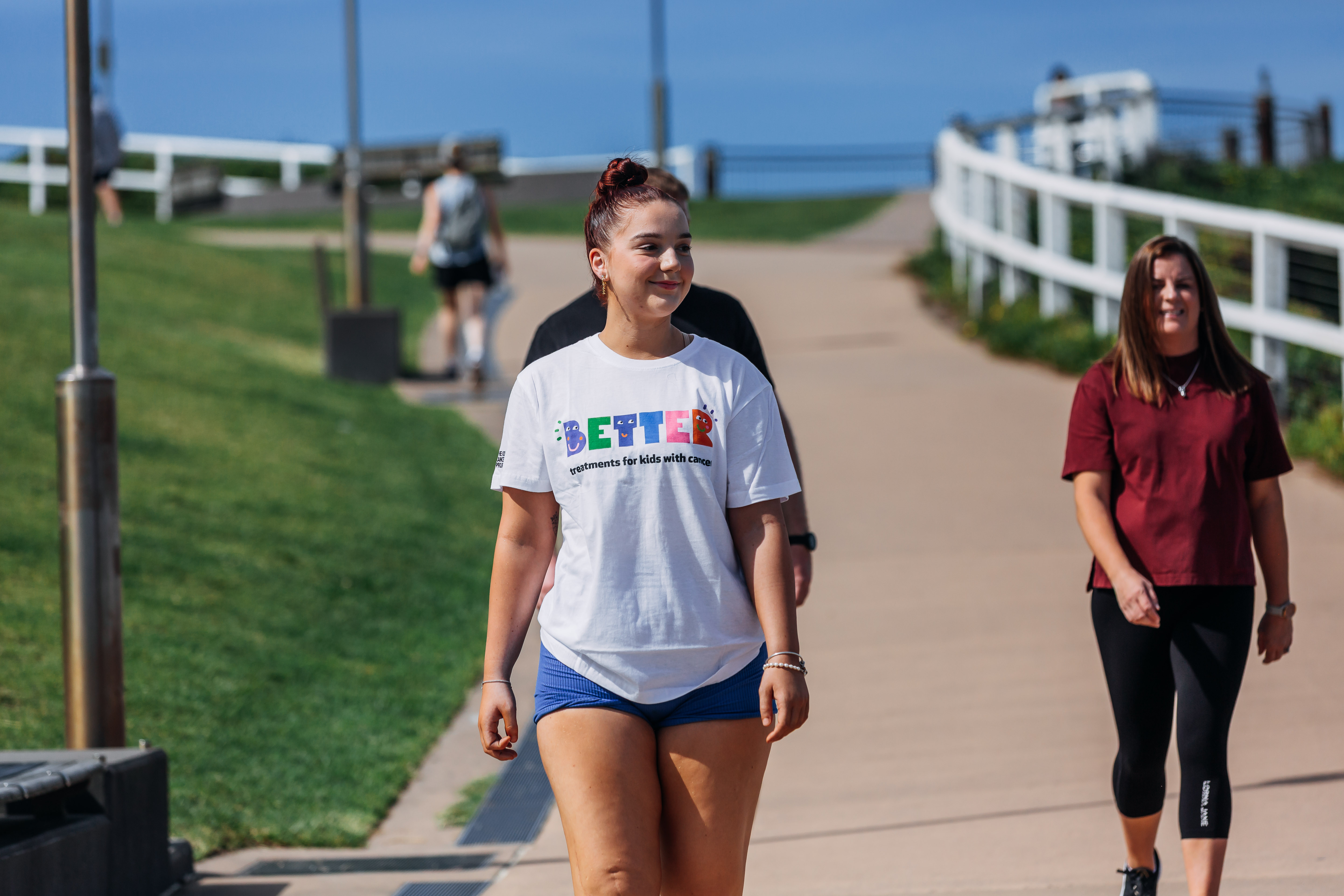Celebrating Sarcoma Awareness Month: What it is and where we’ve been

Responsible for approximately 20% of all childhood cancers, sarcoma is a disease that remains difficult to treat. Evidenced by no change in five-year survival rates (75%) in decades, the need to find more effective treatments is at a critical juncture.
The Kids’ Cancer Project is intent on raising awareness for patients and researchers tied to the insidious disease this Sarcoma Awareness Month.
In the first of a two-part series on the connective tissue cancer, we explore what sarcoma is, how it’s treated currently, and the projects we’ve funded in the past.
Sarcoma refers to several cancers that start in the body’s connective tissues. This includes bones, muscles, tendons, cartilage, fat and blood vessels. Osteosarcoma and Ewing sarcoma both develop in the bones, while rhabdomyosarcoma (muscles), liposarcoma (fat cells) and leiomyosarcoma (soft muscles) are examples of soft tissue sarcomas.
Pain, swelling, fractures or lumps and limited range of motion are key symptoms among each sarcoma type. Surgery, radiation, chemotherapy and targeted therapy are mainly used to treat sarcoma currently, with new treatments on the horizon, but still some time away.
Rhabdomyosarcoma is most common in younger children, particularly those under 10 years old. It peaks between the ages of 2 and 6. Osteosarcoma typically affects adolescents during growth spurts between the ages 10-20. Ewing sarcoma is often seen in older children and teenagers, also between 10-20 years of age. Other soft tissue sarcomas, such as synovial sarcoma, are rare in very young children but more frequent in adolescents and young adults.
The Kids’ Cancer Project has funded multiple sarcoma research projects in recent years to enable research into more effective treatments to take place. Animal testing of various sarcoma treatments has indicated potential positive outcomes for sarcoma patients but are still a fair way down the research pipeline.
A monthly donation to The Kids’ Cancer Project allows you to build long-term impact for kids with cancer.
When you commit to survival with a monthly gift of just $15, you will ensure we can continue to fund bold clinical trials for sarcoma.
Sign up today.
Our past projects
Dr Ben Wylie is familiar to The Kids’ Cancer Project community, but he may become a world-renowned scientist if his research continues its current trajectory. The Perth-based, Telethon Kids Institute researcher has managed to develop a biodegradable gel containing immune-activating drugs that can be applied in the wound bed during surgery.
After extensive testing in the lab, the first trial of the immunotherapy gel began with 12 dogs who had been diagnosed with sarcoma. “Preliminary data from the canine trial is very positive and suggests that the gel-based therapy is safe,” Dr Wylie reports. The next step will be to ensure it works with kids!
Another study operating out of La Trobe University endeavoured to test the efficacy of a drug titled IAP antagonists on mice with sarcoma. When paired with a low dose of the natural protein TNFα, IAP antagonists killed most bone cancer cells. It was found that in order to be effective, cancer cells with a high amount of RIPK1 – the protein responsible for controlling cell death – must be present.
The use of targeted therapies to treat sarcoma is still rare, but another study may well change that in the coming years to become clinical standard. A Phase II clinical trial operated by the Garvan Institute of Medical Research explores targeting the immune molecule IL23 could improve outcomes for sarcoma patients. The trial, still ongoing, is backed by the efficacy of the therapy when used on mouse, which showed a slowing of tumour growth when the drugs were administered.
Another project, a worldwide clinical trial titled INTER-EWING1, has endeavoured to examine the safety and tolerability of adding a newer class of drugs, the tyrosine kinase inhibitors (TKIs), into treatment protocols. Funding from The Kids’ Cancer Project ensured that all paediatric cancer centres throughout Australia and New Zealand could open the trial.
The three-part trial, still ongoing, explores additional chemotherapy and radiation for Ewing sarcoma patients, as well as the trial of a drug called regorafenib in treating newly-diagnosed metastatic Ewing sarcoma patients. It’s the first time a targeted drug has ever been trialled as a first treatment option for this cancer type, with The Kids’ Cancer Project proud to be involved within its facilitation.
Stay tuned for our next article that dives into what we’re currently funding!
A monthly donation to The Kids’ Cancer Project allows you to build long-term impact for kids with cancer.
When you commit to survival with a monthly gift of just $15, you will ensure we can continue to fund bold clinical trials for sarcoma.
Sign up today.

